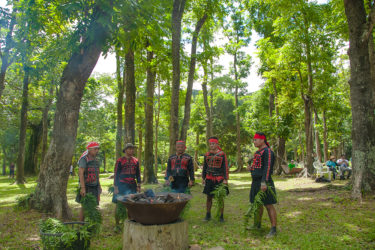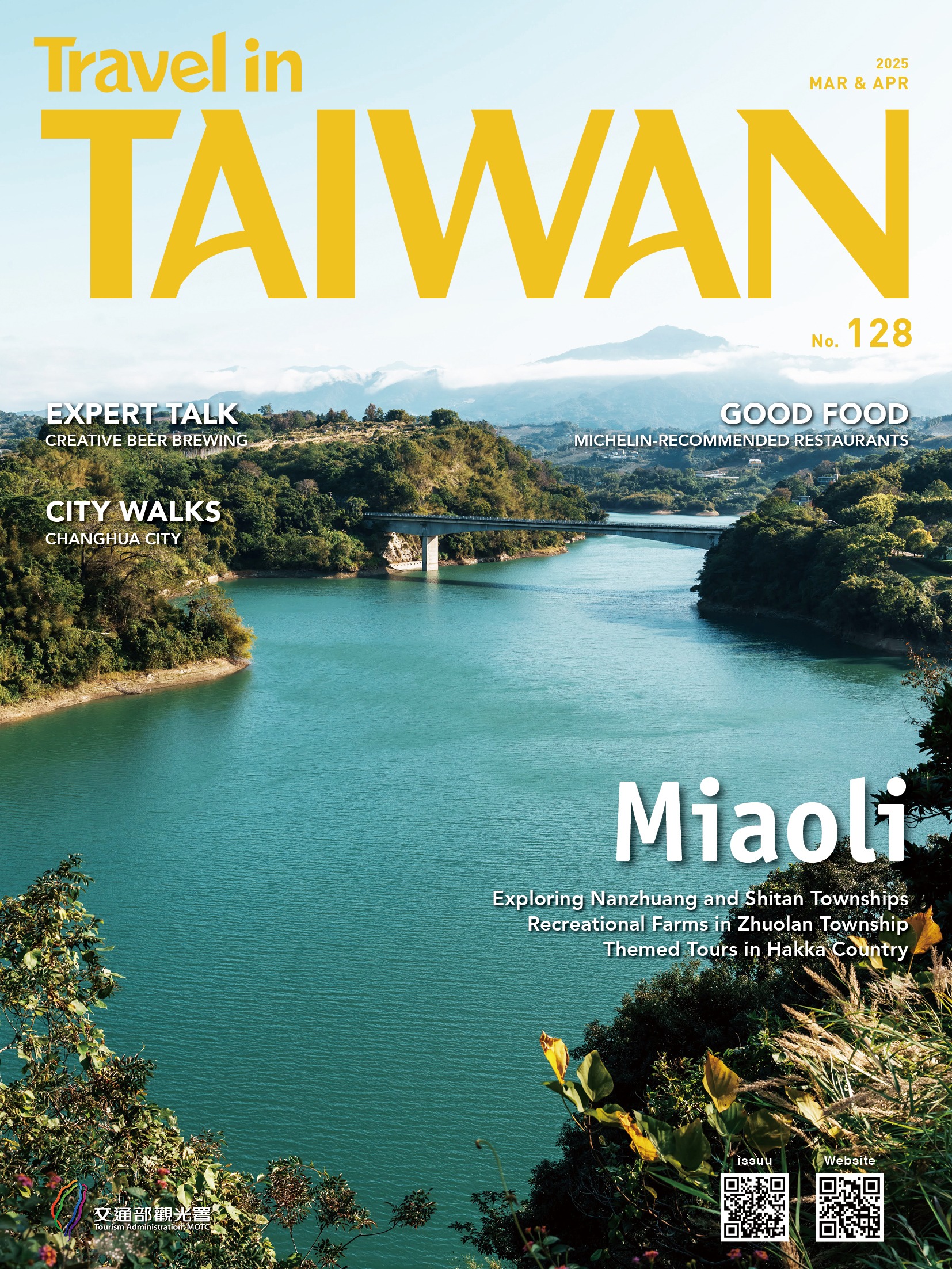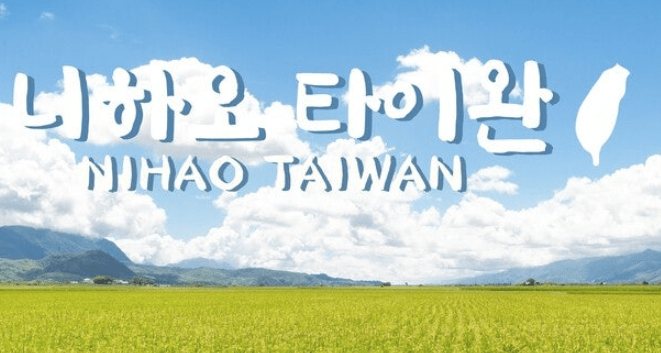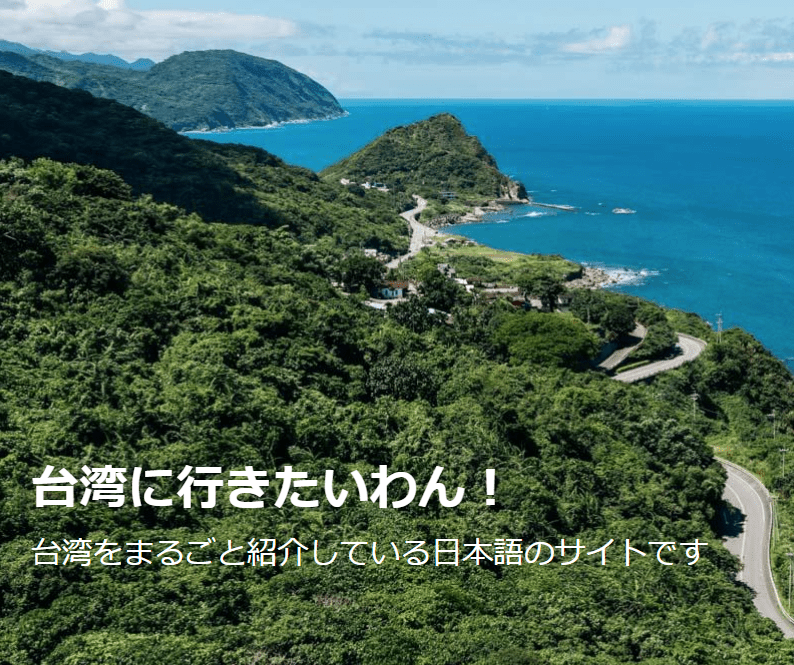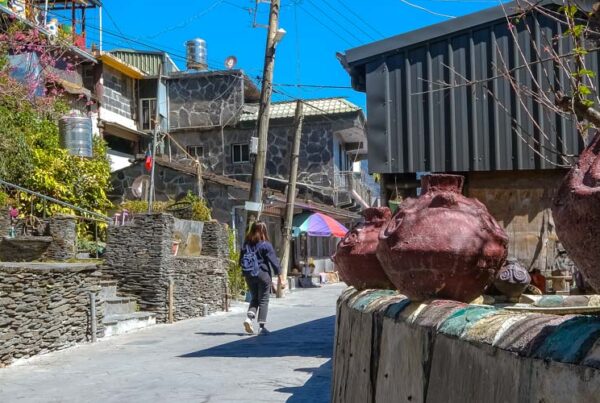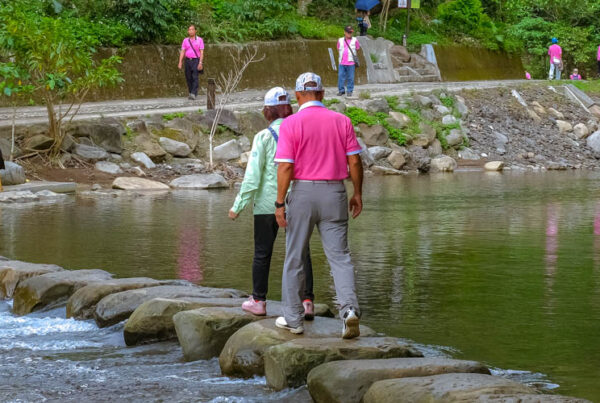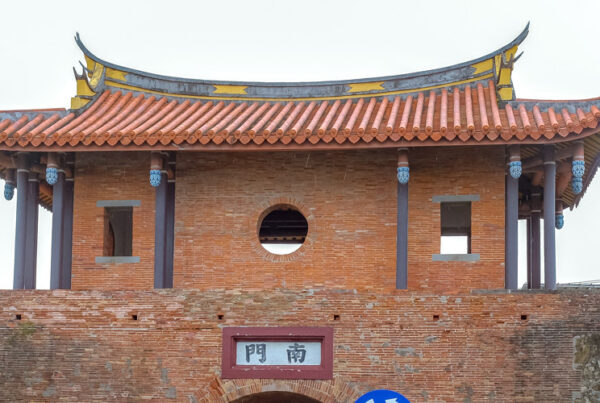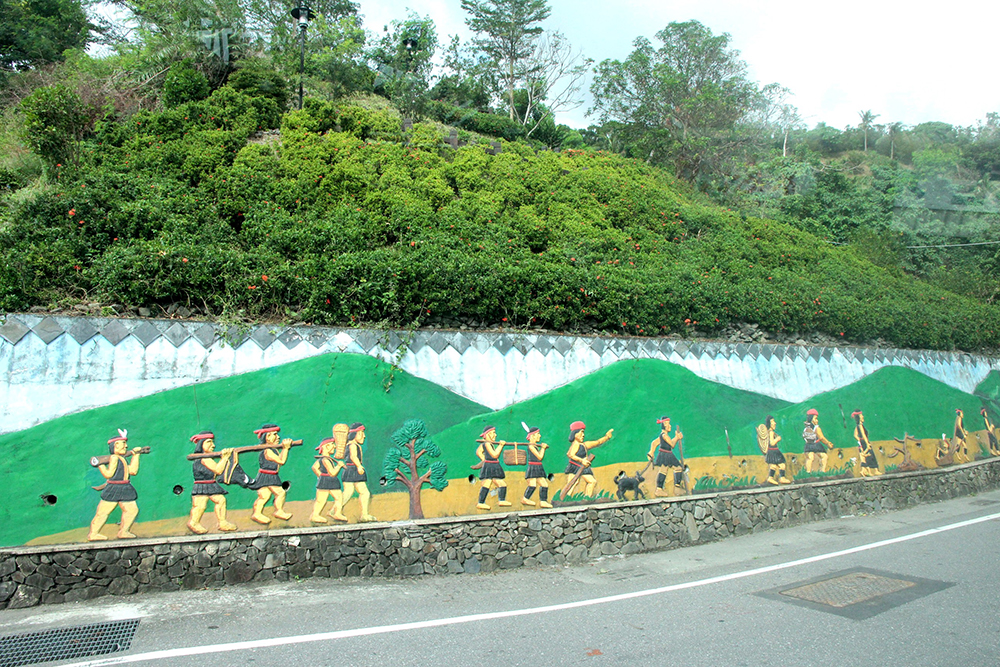
Mural in Binmao Village
Advertorial
Enjoy an in-depth Rukai and Paiwan tribe indigenous experience on southern Taitung’s coast
If you look at a map of Taiwan, you’ll find that the island somewhat resembles a tobacco leaf, the southern end, Hengchun Peninsula, forming the leafstalk. There, close to the southern foothills of the Central Mountain Range (the leaf’s spine) you’ll find numerous indigenous villages, the residents of which belong to the Rukai and Paiwan tribes. If you have your own means of transportation and start from the western part of Taiwan, follow Provincial Highway 1 on the coast south of Kaohsiung and then turn onto Provincial Highway 9, which traverses the Hengchun Peninsula and then follows the eastern coast up north. You can also take a train from Kaohsiung in the west to Taitung in the east, getting off at Jinlun.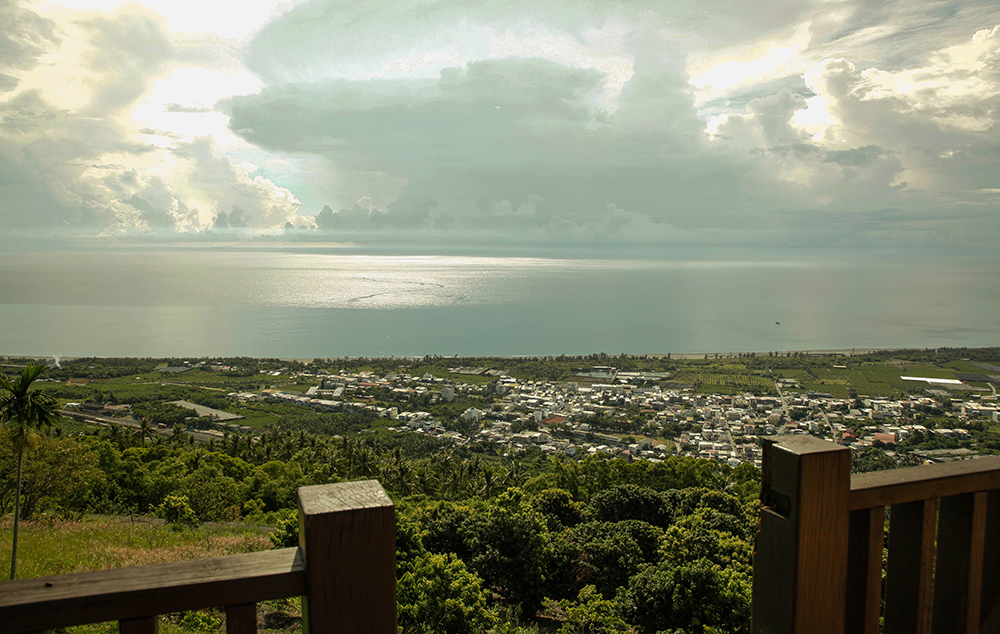
Coastal scenery in southern Taitung County
Due to suitable weather and natural conditions, the coastal plains and the gentle slopes of the mountains in southern Taitung County have been used for centuries by indigenous communities to grow crops, such as millet. The four townships in this area, namely Taimali, Jinfeng, Dawu, and Daren, all have a distinctive indigenous character, are rich in cultural resources, and feature a beautiful and scenic natural environment. In the Taimali and Jinlun river basins you’ll also find a number of hot springs. Arrange a short in-depth indigenous village trip to experience life in these small villages and enjoy the warm hospitality of the local people.
Here is an overview of recommended places to visit.
Chalami
If you head uphill from the picturesque Duoliang Railway Station, located just above the coastal highway, you’ll come to Chalami (Calavi) where you can enjoy indigenous dishes at the Xiangyang Xinchuan Woodworks Studio and marvel at beautiful wood sculptures made from driftwood.
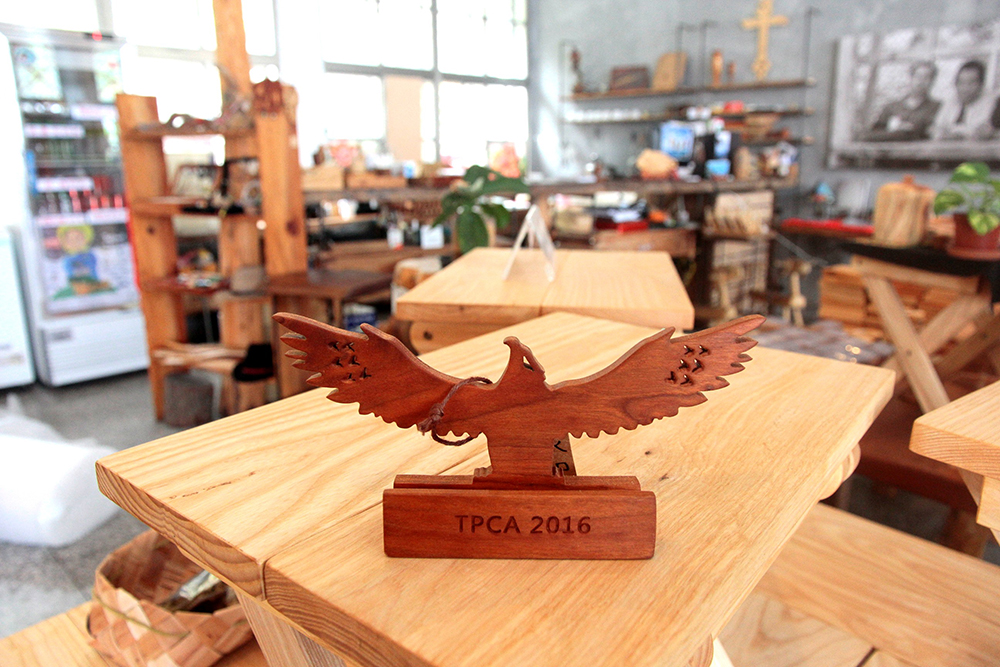
Xiangyang Xinchuan Woodworks Studio
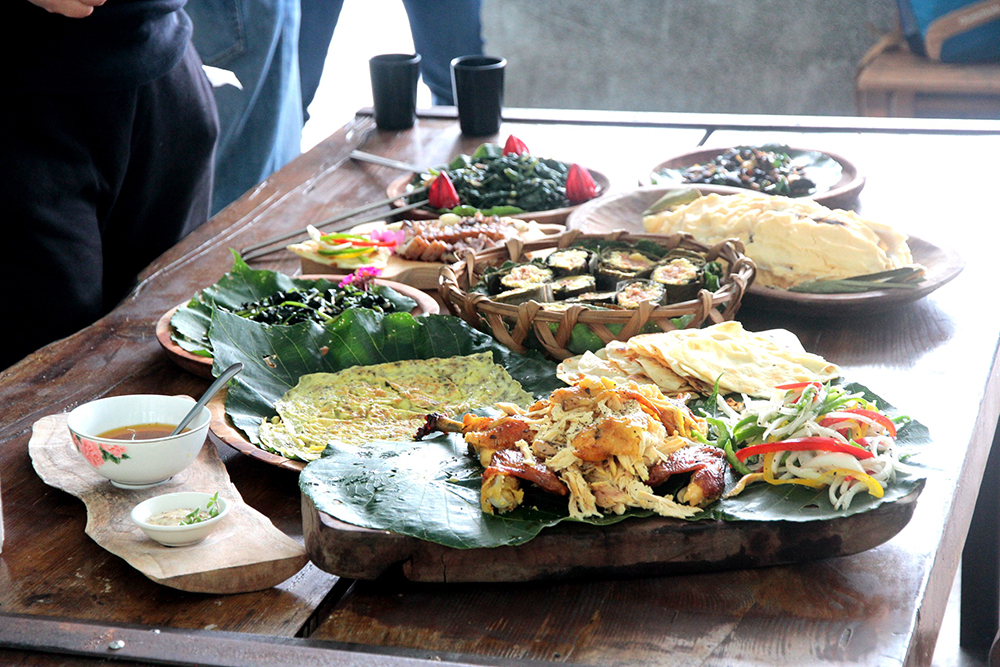
Indigenous food served at the studio
Tel: (089) 771-481
Add: No. 15, Neighborhood 2, Duoliang Village, Taimali Township, Taitung County
(台東縣太麻里鄉多良村2鄰15號)
Daniao
Take Provincial Highway No. 9 further south, following the amazingly beautiful Pacific coast, and make a stop at Daniao village. There you can visit Pacavalj Fabric Workshop and check out the fine handicraft works done by women of the village. The richly embroidered items feature traditional patters of the Paiwan tribe and are made in the traditional ways of the tribe.
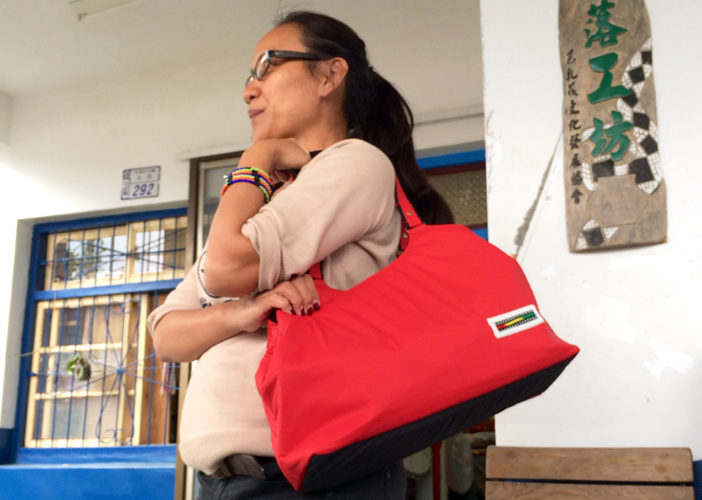
Bag created by Pacavalj Fabric Workshop
Tel: (089) 792-151
Add: No. 292, Daniao Village, Dawu Township, Taitung County
(台東縣大武鄉大鳥村292號)
Aljungic
The next indigenous village you want to visit is Anlang (Aljungic) just to the west of Daren. There, at the Fanshi Yongxin Millet Garden, you can learn from young farmer Fan Yong-zhong, who returned to the countryside after spending time away in the city, about the traditional indigenous way of cultivating the land. Immerse yourself in the culture of the Paiwan tribe right at the source of produces such as millet and djulis.
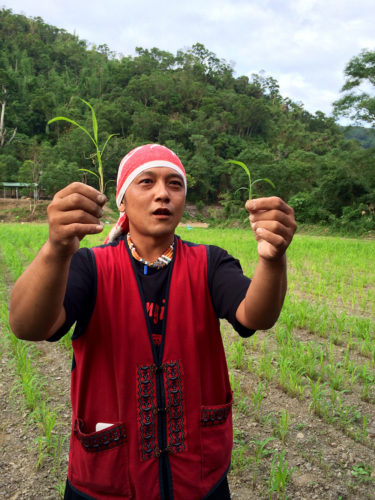
Farmer Fan Yong-zhong of Fanshi Yongxin Millet Garden
Tel: (089) 702-660
Jinlun
Back further up north, dine in Jinlun Village at Jiang Mi Mi Restaurant and feast on innovative dishes prepared by the young Paiwan lad Chen Zhi-wei, who uses produce from the village. When he’s not in the kitchen he might sit down, grab his guitar and start singing under the moon to the delight of his guests.
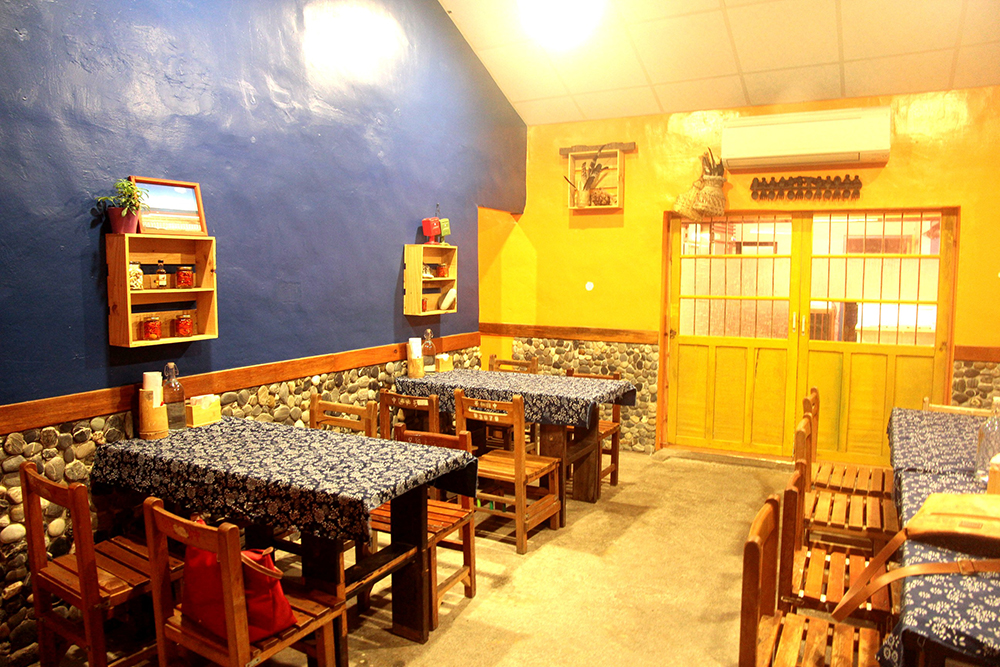
Jiang Mi Mi Restaurant
Tel: 0986-298-325
Add: No. 232, Jinlun Village, Taimali Township, Taitung County
(台東縣太麻里鄉金崙村232號)
Website: www.facebook.com/%E8%AC%9B%E8%9C%9C%E8%9C%9C%E5%B0%8F%E9%A4%90%E9%A4%A8-1644229342482069/
Jinlun is known for its hot springs and spending the night there you want take a dip in the soothing hot-spring water. A good place to stay, located right in the hot-spring area, is Ying Hui Indigenous Homestay, which has a distinct Paiwan and Rukai tribal theme. Upon entering the guesthouse you’ll find yourself surrounded by traditional tribal garments and accessories.
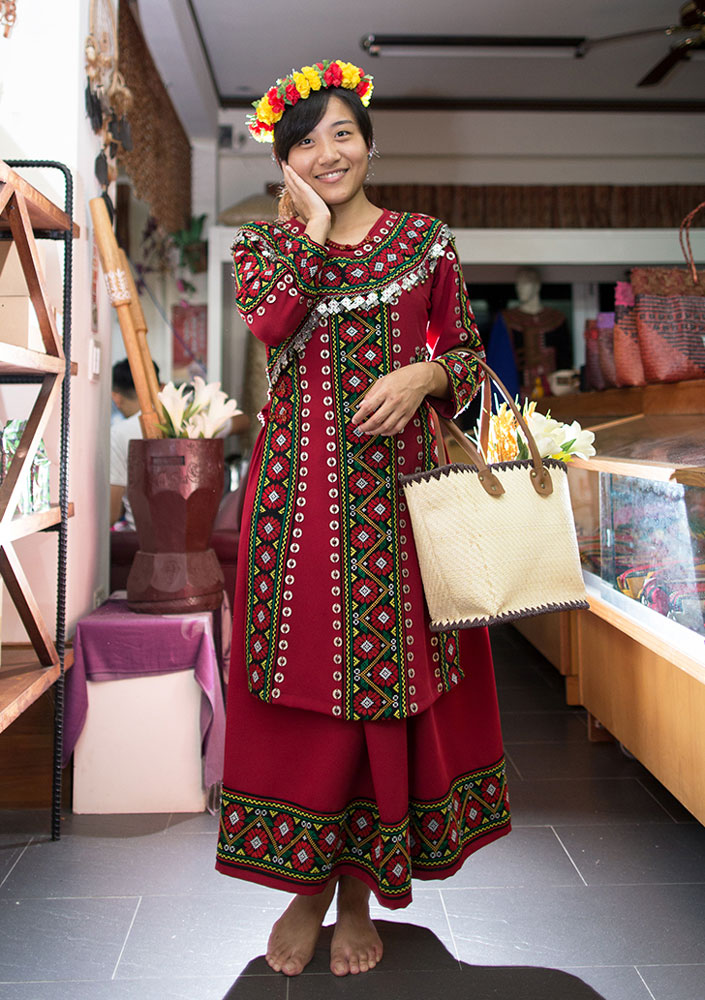
Traditional garment at Ying Hui Indigenous Homestay
The owner of the guesthouse, Luo Ying-hui is carrying on the tradition of Rukai weaving and embroidery, presenting beautiful displays of the art created in the village. If you stay at the guesthouse you’ll also have the chance to put on some of the traditional garments and pose for memorable photos. At the guesthouse you can also try fresh coffee, the beans cultivated and hand-roasted by the owner. Learn first-hand how to pound, select, and roast the beans. The coffee has been awarded as one of the best in Taitung.
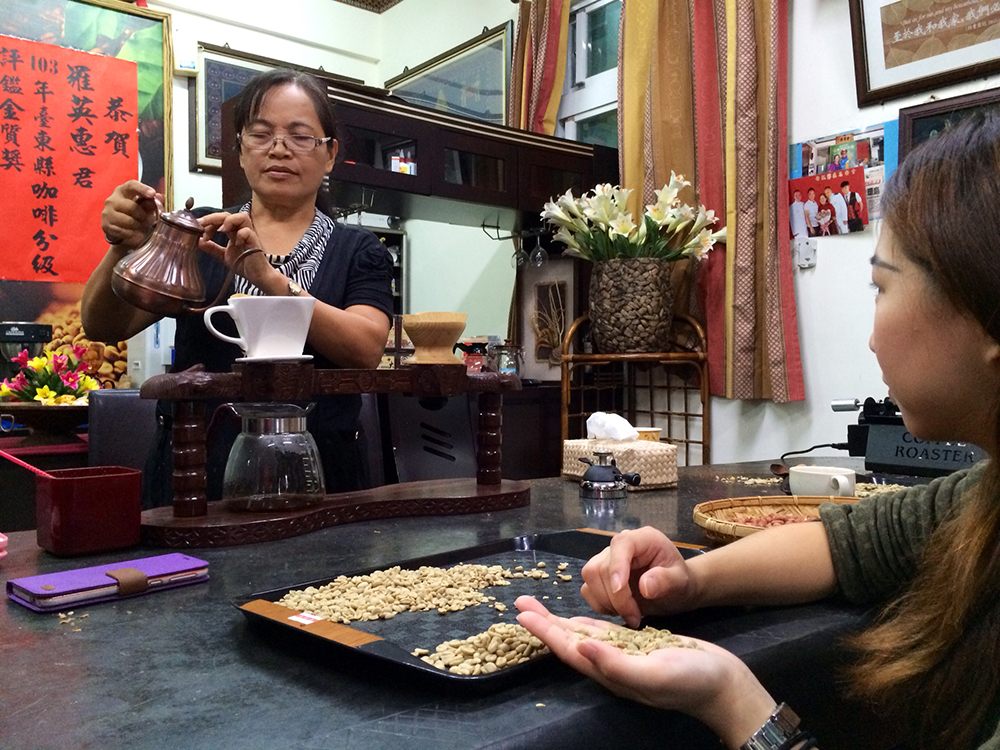
Brewing award-winning coffee
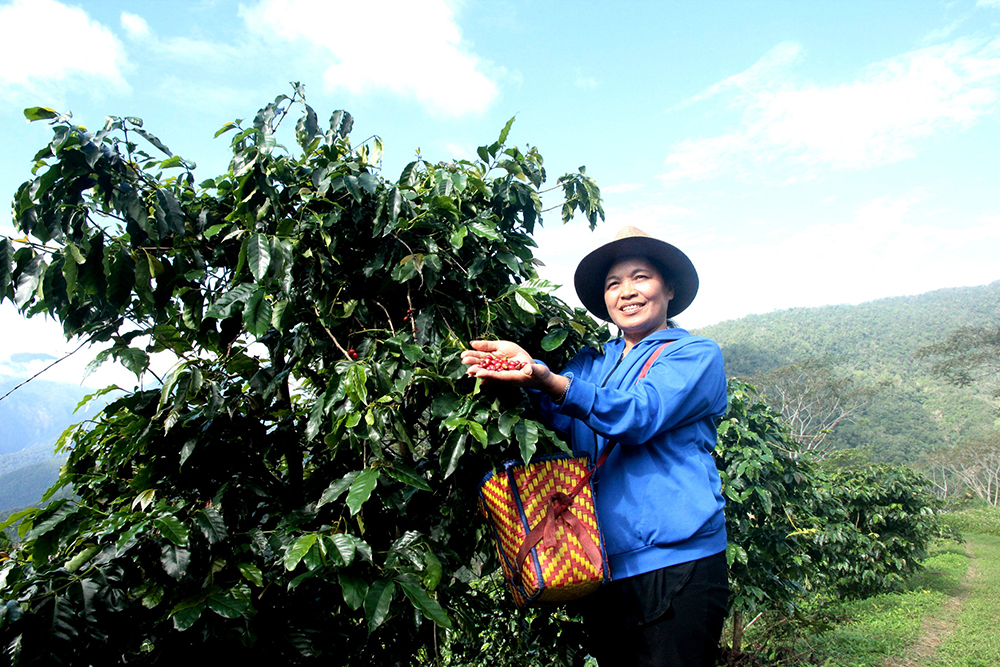
Harvesting coffee beans
Tel: (089) 771-277
Add: No. 9-6, Neighborhood 14, Jinlun Village, Taimali Township, Taitung County
(台東縣太麻里鄉金崙村14鄰9-6號)
Website: http://771277.emmm.tw (Chinese)
Lulakesi
If you are interested in indigenous culture and handicraft, don’t miss Lulakesi (Rulakes) village, further inland from Jinlun. On special occasions, visitors are greeted with a traditional Rukai Water and Fire Ceremony.
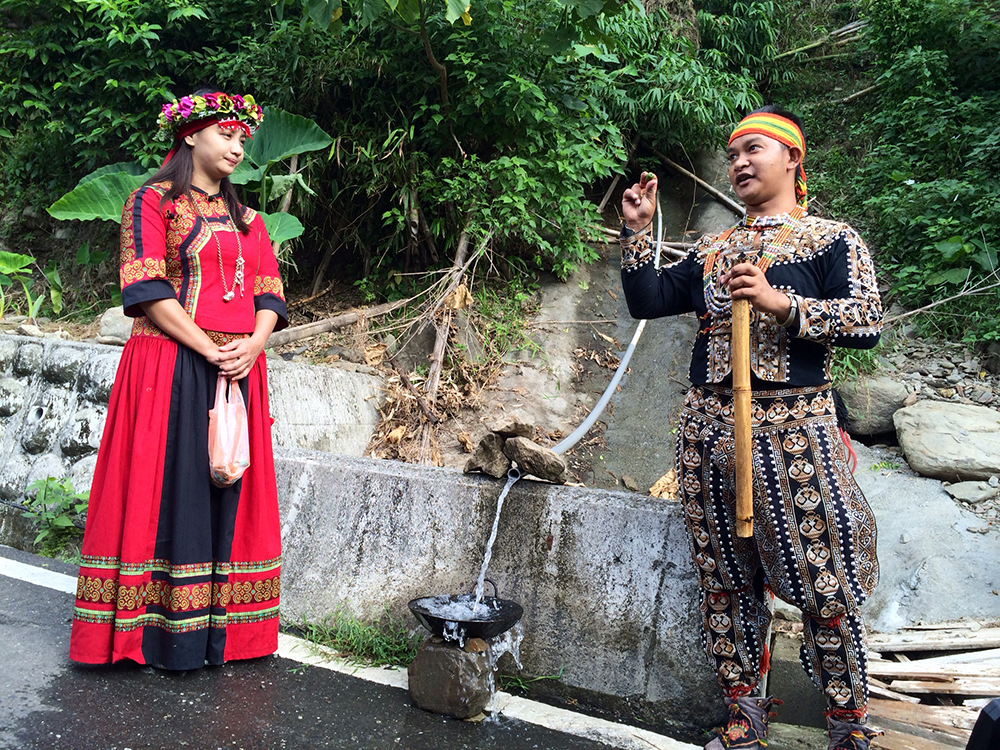
Water and Fire Ceremony
At Rosa’s Workshop you’ll find cultural artifacts of the Rukai tribe, systematically arranged according to period of origin. At the workshop you can also do some DIY, creating auspicious hanging adornments using millet seeds, while listening to stories told by the owner.
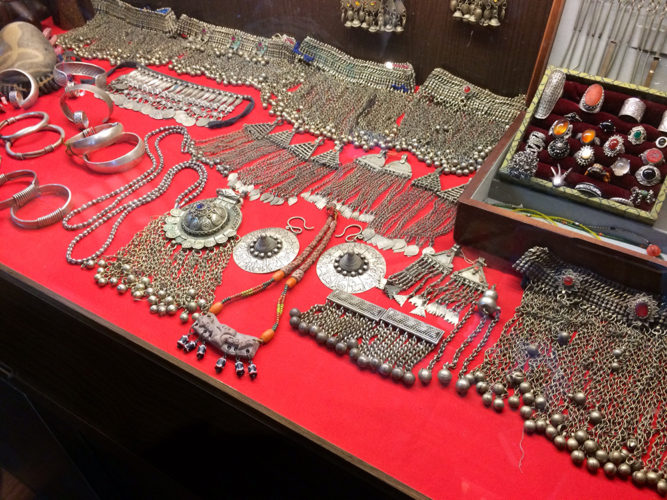
Silver items at Rosa’s Workshop
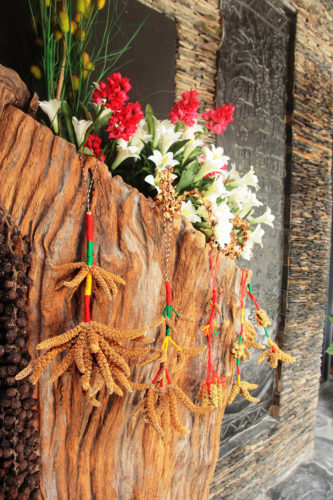
Hanging adornment made with millet
Tel: (089) 780-792
Add: No. 9-1, Neighborhood 1, Liqiu Village, Jinfeng Township, Taitung County
(台東縣金峰鄉歷坵村1鄰9-1號)
Binmao
At Binmao Village (Djumulj), just to the west of Jinlun, visit the small Patagilj bar and try cocktails made with millet wine as base and roselle blossoms as flavor. The bar also serves up a variety of indigenous specialties.
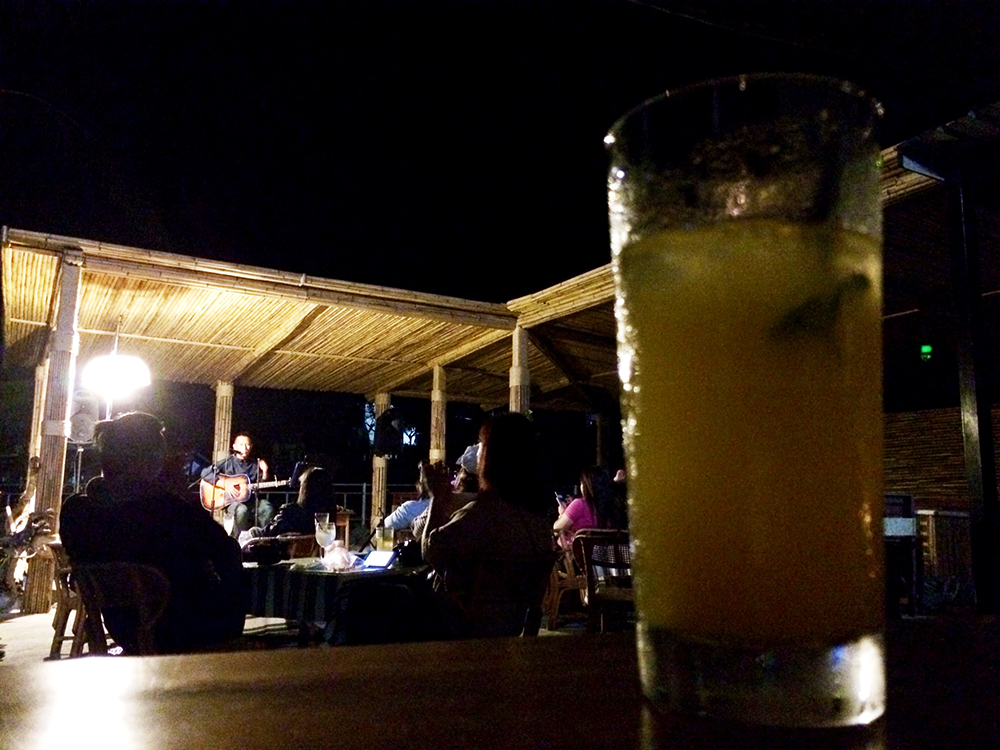
Patagilj bar
Patagilj is a group of young members of the Paiwan tribe who have returned to their homeland to do organic farming. They have created their own brand, and they insist on using only traditional methods to prevent harming the soil. The group promotes produce from Taitung’s Jinfeng Township and is actively preserving the culture of the Paiwan tribe.
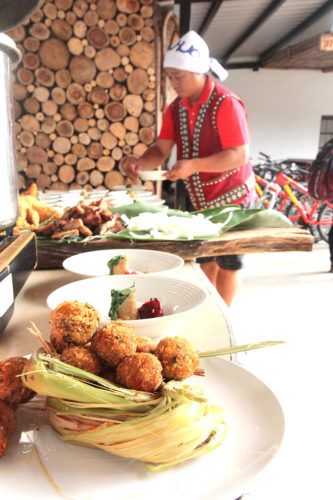
Indigenous specialties at Patagilj
Tel: 0919-162-467 Add: No. 2, Neighborhood 1, Binmao Village, Jinfeng Township, Taitung County
(台東縣金峰鄉賓茂村1鄰2號)
If you plan to visit these villages in the very south of Taiwan, guided culture- and eco-tours can be arranged to allow you gaining a deeper understanding of the local tribal people, how they came to settle in the area, how they used to hunt, and so on. Immerse yourself in the fascinating culture of Taiwan’s indigenous tribes!
Taitung Vaqu (台東南迴小米)
Also read about the charming indigenous village of Dongyuan in Pingtung County, a bit further to the south:
https://taiwaneverything.cc/2016/09/21/dongyuan/
